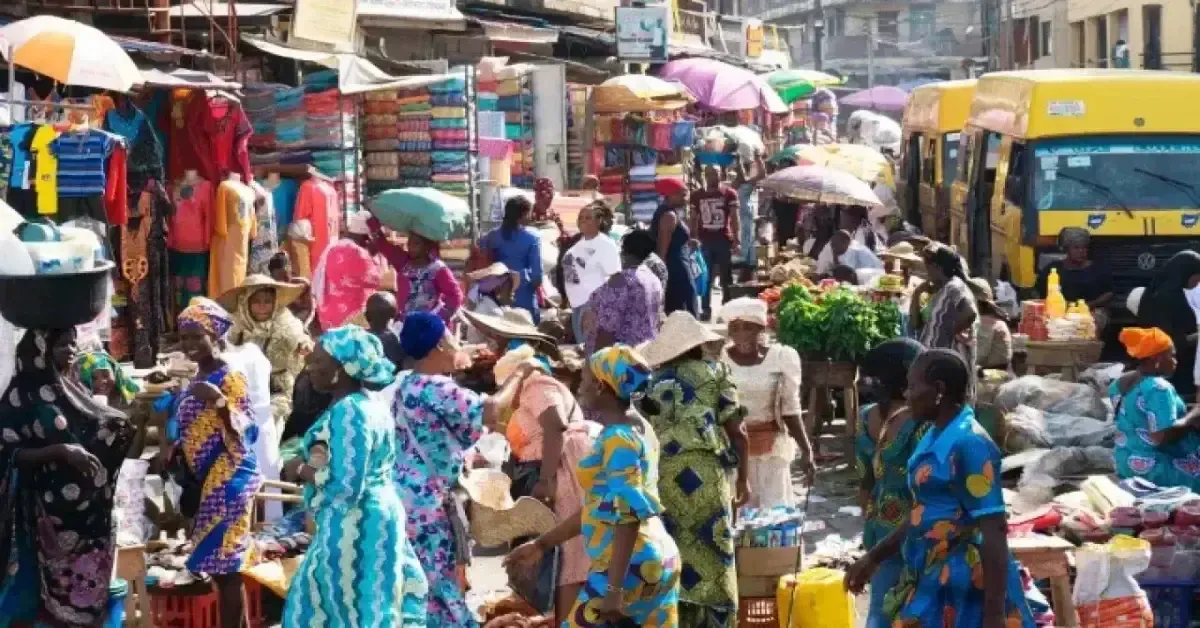Struggling with high inflation in Nigeria? Explore profound effects of inflation on Nigeria's economy and society, with actionable coping strategies. Gain valuable insights into managing inflation's impact on currency, employment, wages, and household finances. Discover effective strategies to navigate the challenges posed by rising inflation rates in Nigeria. Dive into expert analysis and practical solutions for individuals, businesses, and policymakers. Stay informed and empowered with comprehensive information on understanding and managing inflation in Nigeria.
Nigeria has been grappling with persistently high inflation rates, consistently surpassing those of both emerging and advanced economies. Since 2019, inflation has surged dramatically, hitting a nearly 28-year peak of 31.7% in February 2024. The primary drivers behind Nigeria's inflation are food and energy prices, which form the bulk of its inflation basket. Both domestic and external factors, including supply shocks, insecurity, trade restrictions, exchange rate fluctuations, and policy decisions, contribute to these price dynamics.In February 2024, Nigeria witnessed a staggering annual inflation rate of 31.70%, up from 29.90% in January. Food inflation accelerated to 37.92% in February, reflecting soaring prices across various essential items such as bread, fish, meat, fruit, and eggs.
The
impact of inflation on Nigeria's currency, the naira, has been severe, plunging
it to a historic low of over N1,680.50 to $1. This highest inflation surge since 1996, greatly surpasses the Central Bank of Nigeria's target range of
6-9%. The naira has depreciated by approximately 115% since May 2023, following
market-oriented reforms aimed at unifying exchange rates and attracting foreign
investment under President Bola Tinubu's administration.
Inflation
exerts a detrimental influence on the naira, eroding its purchasing power and
making imports more costly. Consequently, consumers and businesses experience
diminished real incomes. Moreover, inflation diminishes the naira's
attractiveness as a store of value, leading to capital flight and further
depreciation. This depreciation, in a cyclical manner, exacerbates inflation by
elevating the costs of imported goods and services, crucial to Nigeria's
economy.
Navigating
this economic challenge presents a policy dilemma for the government and the
central bank, necessitating a delicate balance between price stability,
economic growth, and social welfare. Proposed strategies include raising a
minimum of $10 billion to bolster foreign exchange reserves and stabilize the
naira, alongside a hike in the benchmark interest rate to 22.75% by the central
bank. However, implementing such measures poses potential trade-offs, including
impeding economic recovery, exacerbating poverty, increasing external debt
burdens, and encountering resistance on political and institutional fronts.
Inflation's
ramifications extend beyond currency devaluation to affect government budgets
and expenditures. The erosion of real value and allocation of funds,
particularly in crucial sectors like education and healthcare, exacerbates
existing inadequacies. Furthermore, inflation amplifies fiscal deficits and
government debt burdens, constraining the capacity to finance essential
services.
Households
and consumers bear the brunt of inflation through heightened financial burdens
on education and healthcare, which become increasingly unaffordable. Such
pressures often prompt coping mechanisms such as reduced consumption, reliance
on cheaper food options, and seeking alternative healthcare solutions, thereby
compromising overall well-being.
Service
providers and workers within the education and healthcare sectors experience
reduced real incomes and purchasing power, impacting their motivation and performance.
Inflation-induced constraints on resources further deteriorate service quality
and outcomes, hindering effective delivery.
The
adverse effects of inflation also permeate employment and wages in Nigeria.
Minimum wage erosion exacerbates income inequality, while reduced labour demand
and increased unemployment rates further compound economic challenges. Inflation also stifles human capital development by limiting access to education and training, impeding skill enhancement and employability.
Coping Strategies During Inflation
and Hard Times
- Consuming less expensive or less preferred foods, such as grains, tubers, legumes, and vegetables, instead of meat, fish, eggs, and fruits.
- Reducing food consumption portions, the number of meals, or adults’ intake to prioritise children’s needs.
- Purchasing food in bulk if you can or form a cooperative with relatives, friends, or neighbours to buy foodstuff in bulk and then share.
- Leasing or selling assets, such as land, livestock, or jewellery, to generate income for investment, upkeep or food.
- Get involved in government programmes, such as cash transfers, and food aid.
- Diversifying income sources, such as engaging in petty trading, farming, casual labour, multi-level marketing [MLM] or freelancing.
- Seeking alternative health care services, such as traditional healers, and herbal medicines.
While
these strategies provide temporary relief, they come with inherent risks such
as compromised nutrition, increased indebtedness, and reduced social capital.
In
conclusion, addressing Nigeria's inflationary pressures necessitates a
multifaceted approach encompassing monetary, fiscal, and structural reforms.
Government interventions must prioritize mitigating the adverse impacts on
vulnerable populations while fostering sustainable economic growth and
stability.
Recommended for you:
- Mitigating the Impact of Fuel Subsidy Removal in Nigeria
- 13 Ways to Fight Inflation & Food Crisis: A Practical Guide
- The Power of Gratitude: Thank Your Way into Fortune in 2024













.webp)


0 Comments